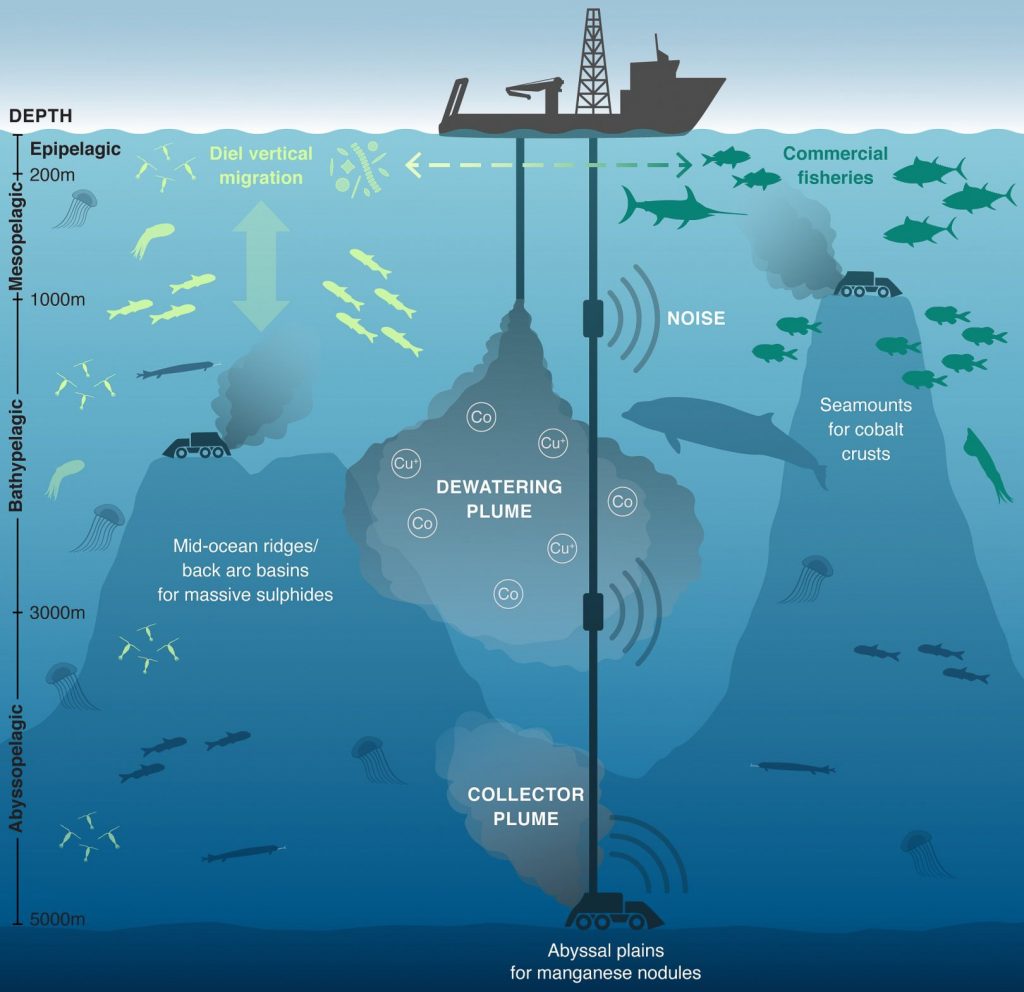Lockheed Martin applies for extension of deep-sea mining licenses in Pacific Ocean

Lockheed Martin has applied to the federal government to extend two licenses to 2027 for exploratory deep-sea mining of hard minerals in the Pacific Ocean’s Clarion-Clipperton Zone, halfway between Mexico and Hawaiʻi. The licenses are scheduled to expire June 2, 2022.
The licenses were the subject of a Center for Biological Diversity lawsuit in 2015 that resulted in a settlement requiring the federal government to conduct an in-depth analysis of the risks to wildlife and underwater ecosystems.
“Before the Biden administration acts, it must take a hard look at this growing threat to the world’s oceans,” attorney Miyoko Sakashita, director of the center’s oceans program, said in a press release.
“Mining the deep sea is as destructive as strip mining the mountains of Appalachia, extinguishing whole ecosystems with a single blow. The federal government shouldn’t renew these licenses, and it needs to follow the lead of West Coast states and ban deep seabed mining.”
Lockheed Martin’s application was published in the Federal Register today. Comments can be submitted until May 17 through the Federal eRulemaking Portal at http://www.regulations.gov.
Exploratory contracts for deep-sea mining have been issued for more than 1.3 million square kilometers of the high seas by the International Seabed Authority, the body established under the United National Convention on the Law of the Sea to regulate deep seabed mining and award mining contracts in areas beyond national jurisdiction.
Because the United States is not a party to the Law of the Sea Convention and not a member of the International Seabed Authority, it has a separate licensing system.
The areas of the deep sea where mining contracts have been issued support some of the most biodiverse and scientifically important ecosystems on Earth.
Scientists fear the practice could devastate deepwater ecosystems, both directly by destroying life in the seabed, and indirectly by generating sediment plumes, light pollution, noise and toxins that would affect life far beyond the actual mining sites, according to the Center for Biological Diversity. A 2020 study, led by researchers at University of Hawai‘i at Mānoa, outlined many of the possible negative effects of deep-sea mining involving fisheries, seafood contamination, carbon transport and biodiversity.
Most of the species and ecosystems in the areas where deep-sea mining would occur have not been well studied, nor have the potential consequences of mining them. In recognition of these risks, many governments have banned the practice.
A bill introduced last month in the California legislature, the California Seabed Mining Protection Act, would protect 2,500 square miles of seafloor. If the bill becomes law, California will join Washington and Oregon, which banned the practice in 1995 and 2001, respectively.










